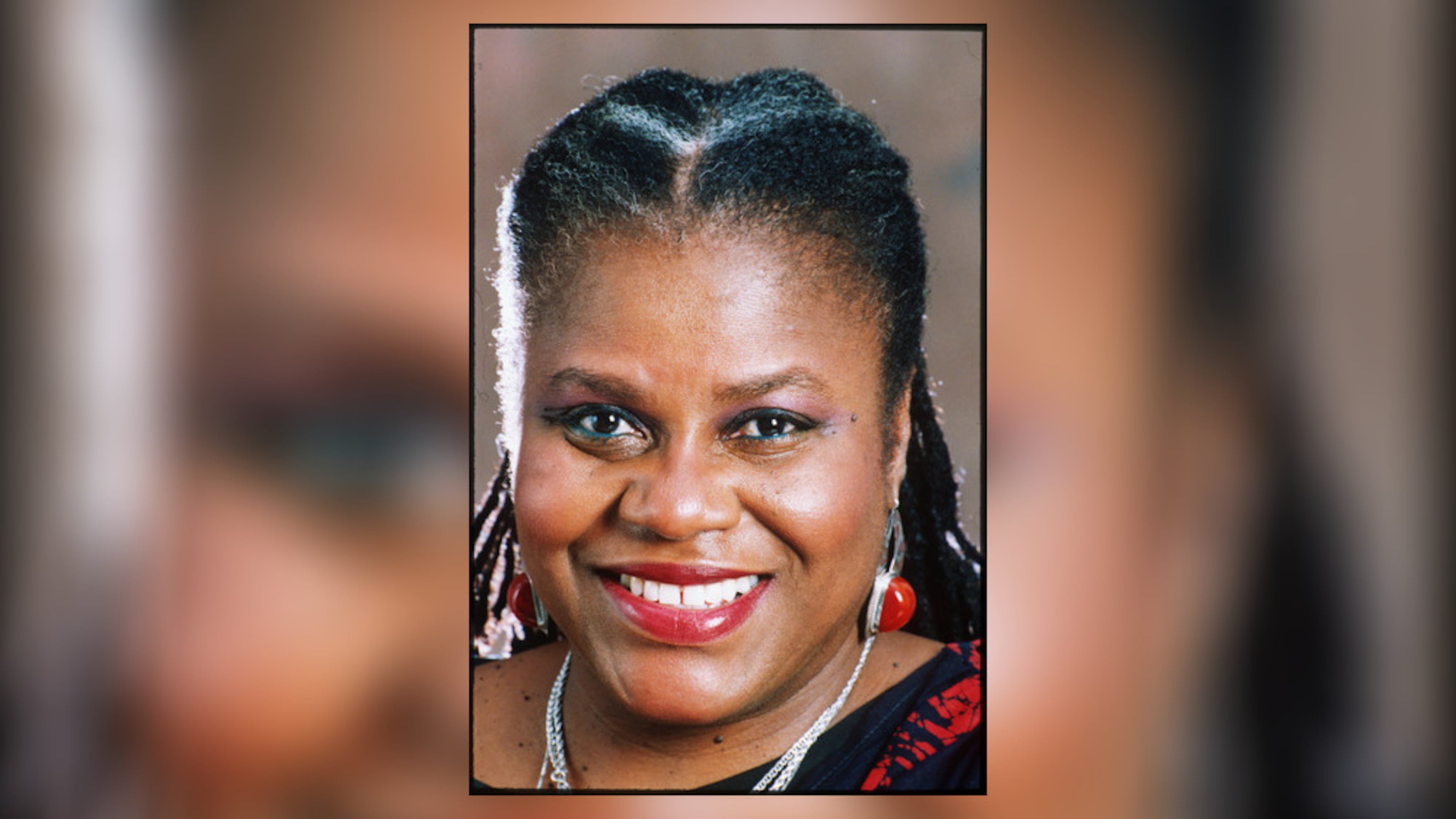Bernice Johnson Reagon’s songs moved a nation

More than 60 years ago, Bernice Johnson Reagon stood on the steps of the Lincoln Memorial with her fellow Freedom Singers and sent her alto voice soaring out over the quarter of a million people gathered on the National Mall for the 1963 March on Washington.
“From where we were standing, the people looked like little ants,” recalled Rutha Mae Harris, another of the Freedom Singers quartet who was with her that day as they performed a medley that included “We Shall Not Be Moved.”
“She wasn’t nervous; none of us were nervous. We all felt we had accomplished what we needed to accomplish when we finished performing,” Harris added.
From that mountaintop experience when she was a mere 20 years old, Bernice Reagon went on to found the women’s musical ensemble Sweet Honey in the Rock, become a leading scholar, author and documentary maker about the history of Black music, and devote her life to activism.
“I hear music all the time. I have always heard it, so much so that it seems I could never get enough of it,” she wrote in a 1971 article for Sing Out! magazine.

Reagon died July 16, 2024, in Washington, D.C., where she lived. Her daughter, musician Toshi Reagon, confirmed the death on Facebook but did not give a cause.
“As a scholar, singer, composer, organizer and activist, Dr. Reagon spent over half a century speaking out against racism and systemic inequities in the U.S. and globally,” Toshhi Reagon wrote.
“I am grateful for the life, courage and love legacy of Bernice Johnson Reagon,” Bernice King, the Rev. Dr. Martin Luther King’s daughter, wrote on X, formerly known as Twitter. “Rest in power, fellow Bernice.”
Reagon was born in Dougherty County, Georgia, near Albany, on Oct. 4, 1942, the third child of eight children born to Rev. J.J. Johnson, a Baptist minister, and Beatrice Johnson. She was drawn to music from her childhood.
“My history was wrapped carefully for me by my fore-parents in the songs of the church, the work fields, and the blues,” she wrote in the liner notes to her 1965 album “Folk Songs: The South.”
After graduating from Monroe High School in Albany in 1959, she began studying music at Albany State College and became politically active in the NAACP and the Student Nonviolent Coordinating Committee (SNCC). After being arrested during a demonstration, she was expelled from Albany State.
She was one of the four original SNCC Freedom Singers, founded in 1962, along with Harris, Charles Neblett and Cordell Reagon. In 1963, she married Reagon, and they had two children, Kwan and Toshi. The couple divorced in 1967.
After Albany State, Reagon briefly attended Spelman College, then dropped out to tour with the Freedom Singers; at one point, the group was shot at while touring in Alabama.
She later finished her bachelor’s degree in history at Spelman in 1970, then moved to Washington, D.C. She earned her Ph.D. from Howard University in 1975. From 2002-’04 she served as the Cosby Chair of Fine Arts at Spelman.
In 1966, she started the Harambee Singers in Atlanta, an a cappella group of six Black women. She followed that in 1973 with the more famous vocal ensemble Sweet Honey in the Rock (the name comes from Psalm 81) while a graduate student at Howard University.
“We started as a group of artists in an environment dealing with multiple issues,” she told The Atlanta Journal-Constitution in 1999.
“It was a major period for women; there were issues such as nuclear proliferation being talked about, political issues, and the anti-apartheid movement. So we ended up being a group that echoed a lot of concerns people were dealing with at that time.”
She led the ensemble’s richly diverse mix of spirituals, hymns, blues, jazz and original songs until she retired in 2004. The group continues with other members.
Reagon’s academic career was as robust as her musical one. She was a professor emeritus of history at American University, curator emeritus at the Smithsonian’s National Museum of American History, and wrote the 1993 book “We Who Believe in Freedom: Sweet Honey in the Rock Still on the Journey.”
She was the producer and lead scholar for the Peabody Award-winning 1984 National Public Radio series “Wade in the Water: African American Sacred Music Traditions.” She also composed the score to the 1998 PBS series “Africans in America” and contributed music and scholarship to the landmark PBS series “Eyes on the Prize.”
Among many career honors, she was awarded a MacArthur Fellowship “genius grant” in 1989, the Presidential Medal in 1995, and the Heinz Award for the Arts and Humanities in 2003.
“She would want to be remembered as a good troublemaker,” said her lifelong friend Harris, with a chuckle, quoting John Lewis. “And a leading scholar of Black musical life.”
Surviving family include daughter Toshi and son Kwan; her partner of many years, Adisa Douglas; two brothers and two sisters.
Details regarding a public celebration of life will be announced later, her daughter posted on Facebook.


